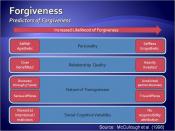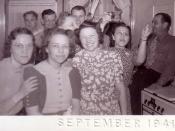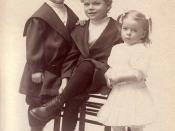The psychosocial theory provides a theoretical structure that highlights the constant assimilation and communication of individual competencies with resources, difficulties, and culture. Development is seen as a product of genetic, social, maturational, and autonomous dynamics. For this assignment, I am analyzing personal development using Erickson's psychosocial theory of development.
Erickson believed that development follows the epigenetic principle, that anything that grows has a ground plan (Vander Zanden et al., 2006). Simply stated, each stage of Erickson's theory ascends according to an innate plan with each stage building upon the previous stages and focuses on a challenge that must be resolved during that stage in order to move effectively onto the next developmental stage. Erickson's psychosocial theory draws our attention to the continual process of personality development that takes place s throughout the life span. Erickson believed each part each part of the personality has a particular time in the life span when it must develop if at all (Vander Zanden et al.,
2006).
Psychosocial Stages of DevelopmentThe first stage in Erikson's theory begins in infancy, with the conflict of trust versus mistrust. In this stage an infant is dependent upon others, specifically their parent or caregiver to meet their basic needs. If these needs are meet, the infant will develop trust in self, parent's caregivers, and their surroundings, if not mistrust will develop. Trust versus mistrust is present throughout a person's life span. Consequently, if the conflict is not positively resolved within this developmental period, the person maybe affected negatively and only partially immerses themselves into society.
As a mother, I understand that my daughter's need for nourishment, comfort, care, and familiarity, must be met by me. In order for her to develop a loving and trusting relationship with me, I remained responsive and consistent. As my daughter grows older,


